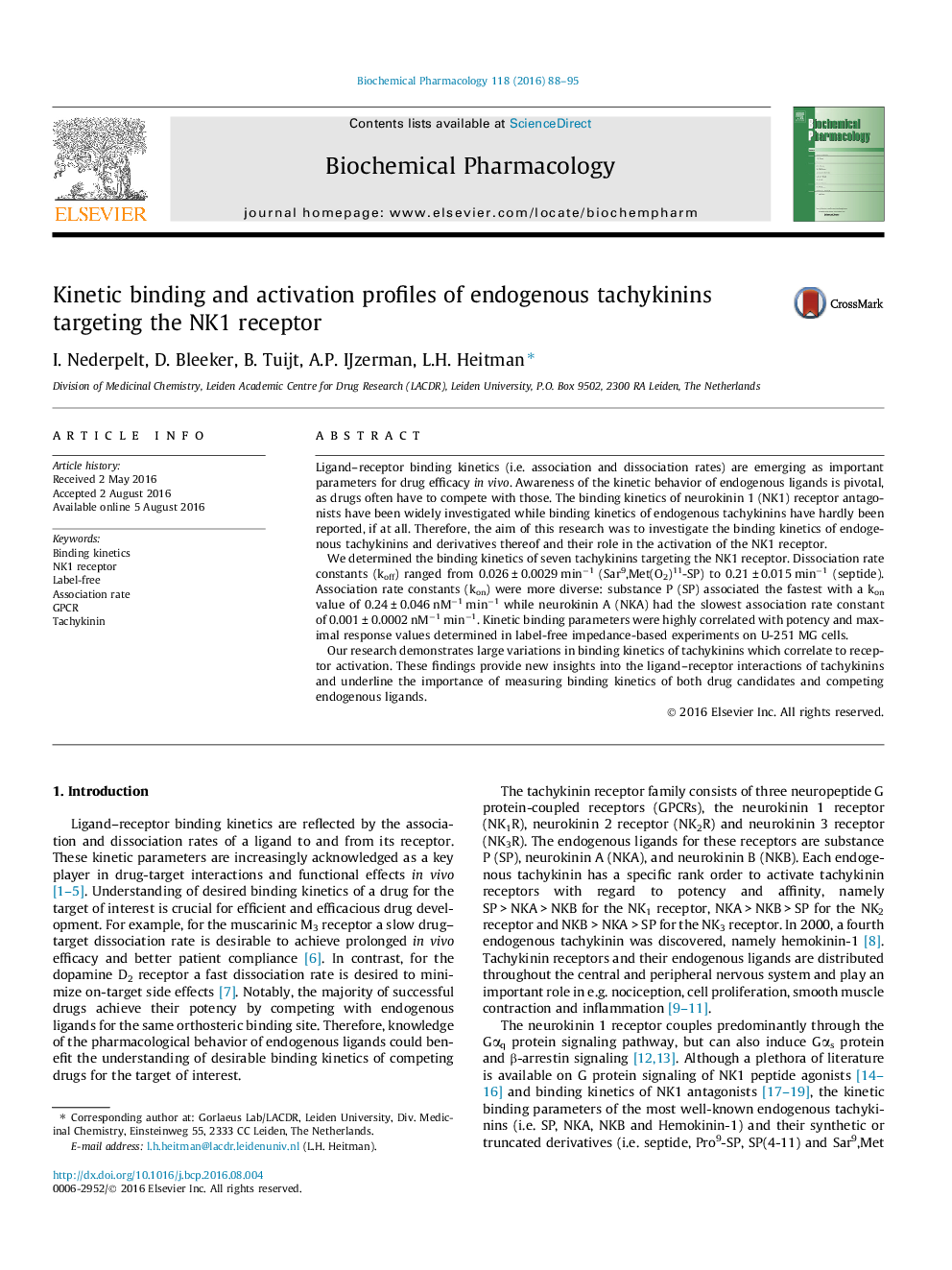| کد مقاله | کد نشریه | سال انتشار | مقاله انگلیسی | نسخه تمام متن |
|---|---|---|---|---|
| 5552419 | 1557895 | 2016 | 8 صفحه PDF | دانلود رایگان |

Ligand-receptor binding kinetics (i.e. association and dissociation rates) are emerging as important parameters for drug efficacy in vivo. Awareness of the kinetic behavior of endogenous ligands is pivotal, as drugs often have to compete with those. The binding kinetics of neurokinin 1 (NK1) receptor antagonists have been widely investigated while binding kinetics of endogenous tachykinins have hardly been reported, if at all. Therefore, the aim of this research was to investigate the binding kinetics of endogenous tachykinins and derivatives thereof and their role in the activation of the NK1 receptor.We determined the binding kinetics of seven tachykinins targeting the NK1 receptor. Dissociation rate constants (koff) ranged from 0.026 ± 0.0029 minâ1 (Sar9,Met(O2)11-SP) to 0.21 ± 0.015 minâ1 (septide). Association rate constants (kon) were more diverse: substance P (SP) associated the fastest with a kon value of 0.24 ± 0.046 nMâ1 minâ1 while neurokinin A (NKA) had the slowest association rate constant of 0.001 ± 0.0002 nMâ1 minâ1. Kinetic binding parameters were highly correlated with potency and maximal response values determined in label-free impedance-based experiments on U-251 MG cells.Our research demonstrates large variations in binding kinetics of tachykinins which correlate to receptor activation. These findings provide new insights into the ligand-receptor interactions of tachykinins and underline the importance of measuring binding kinetics of both drug candidates and competing endogenous ligands.
Journal: Biochemical Pharmacology - Volume 118, 15 October 2016, Pages 88-95